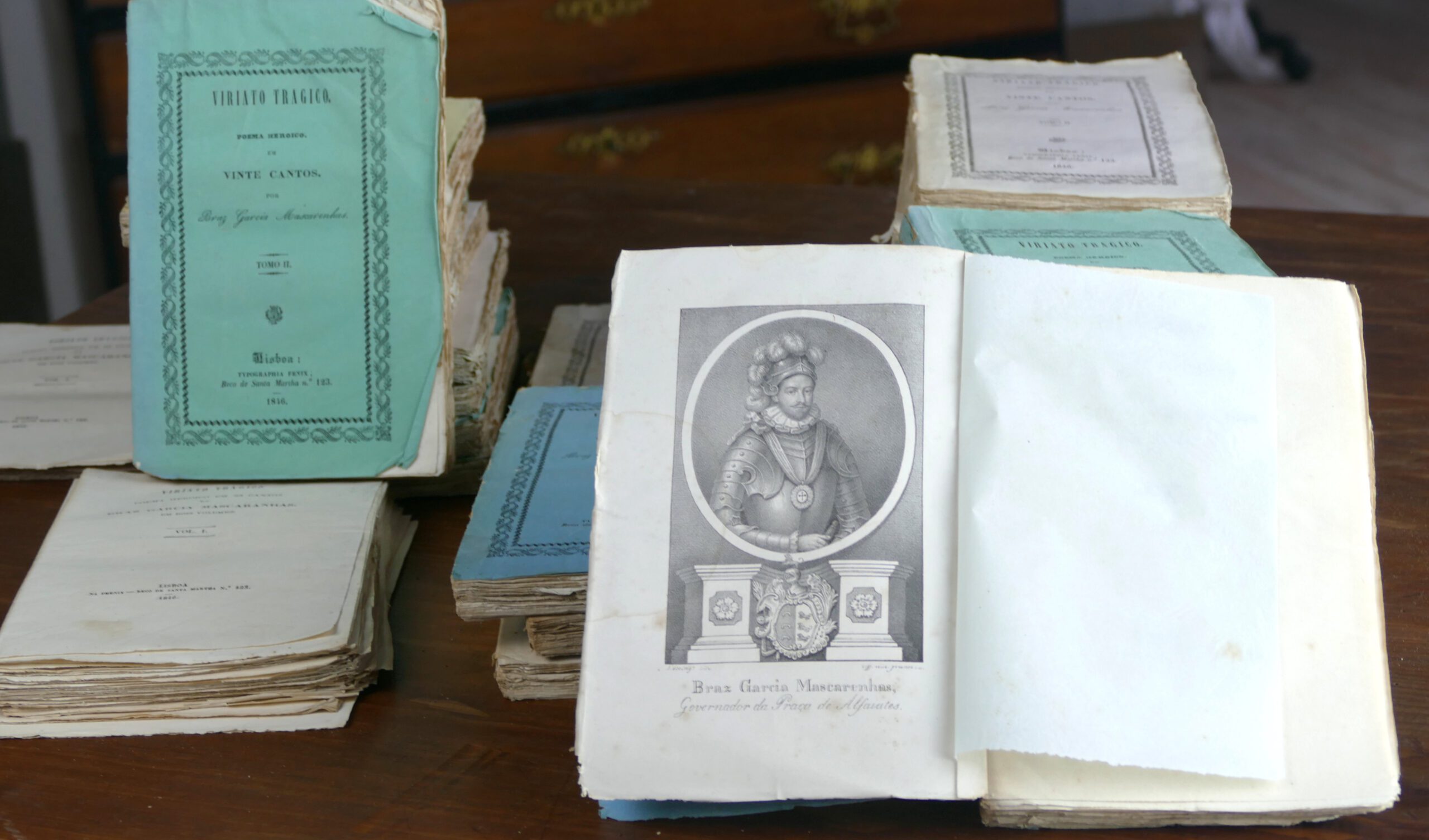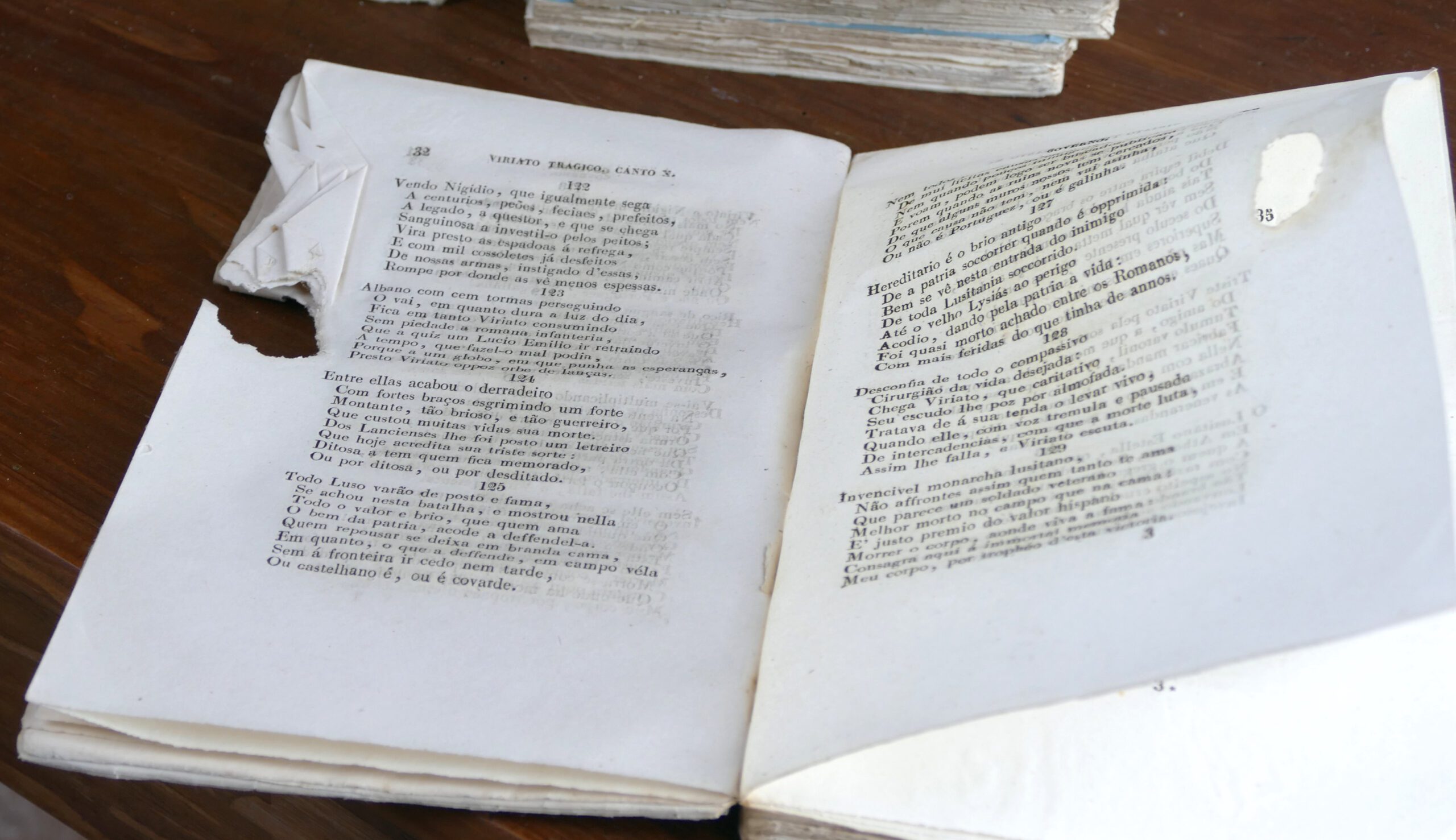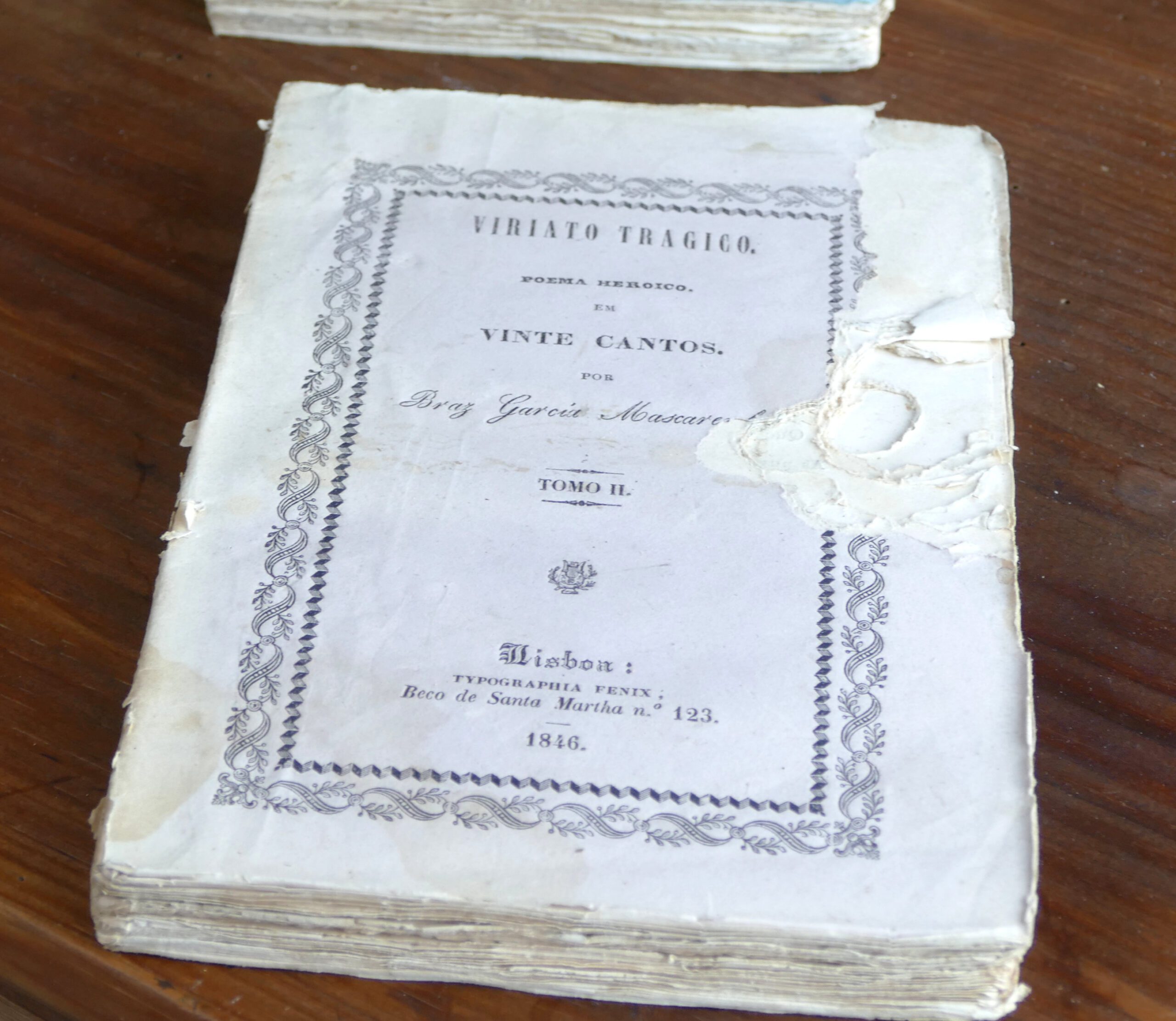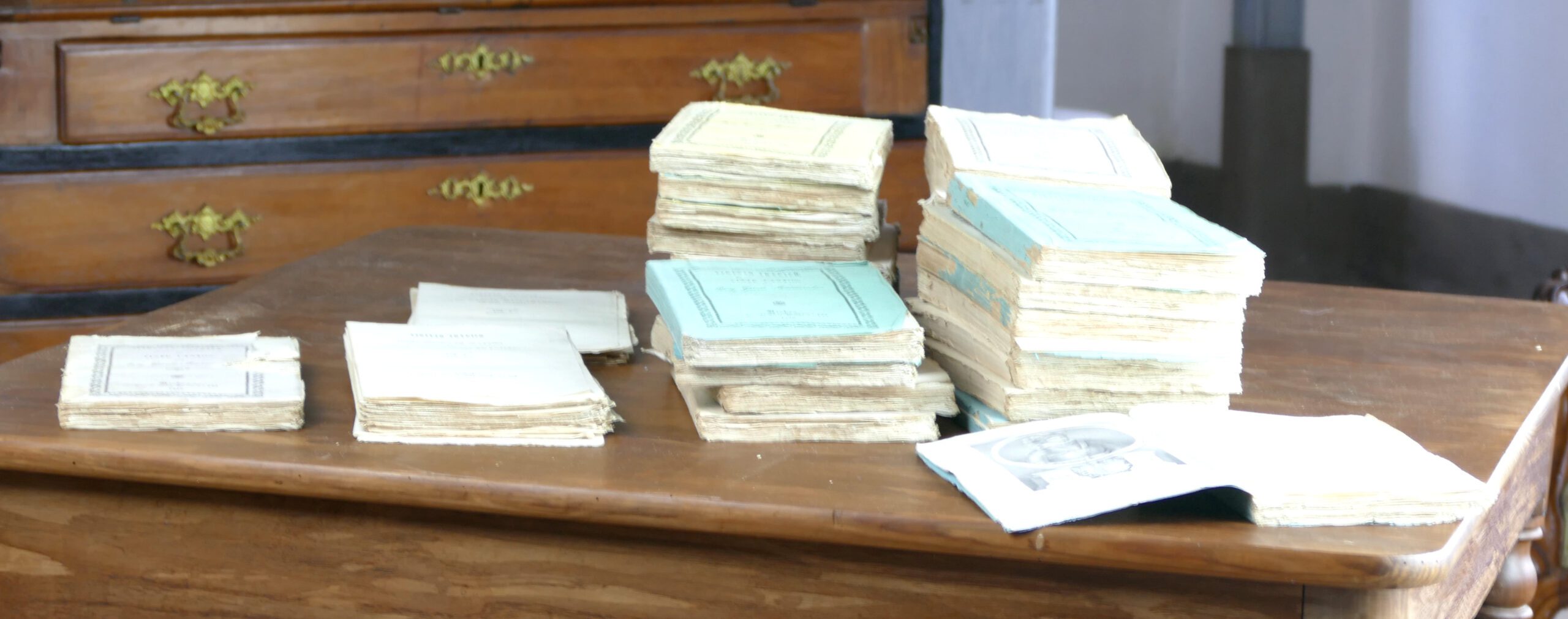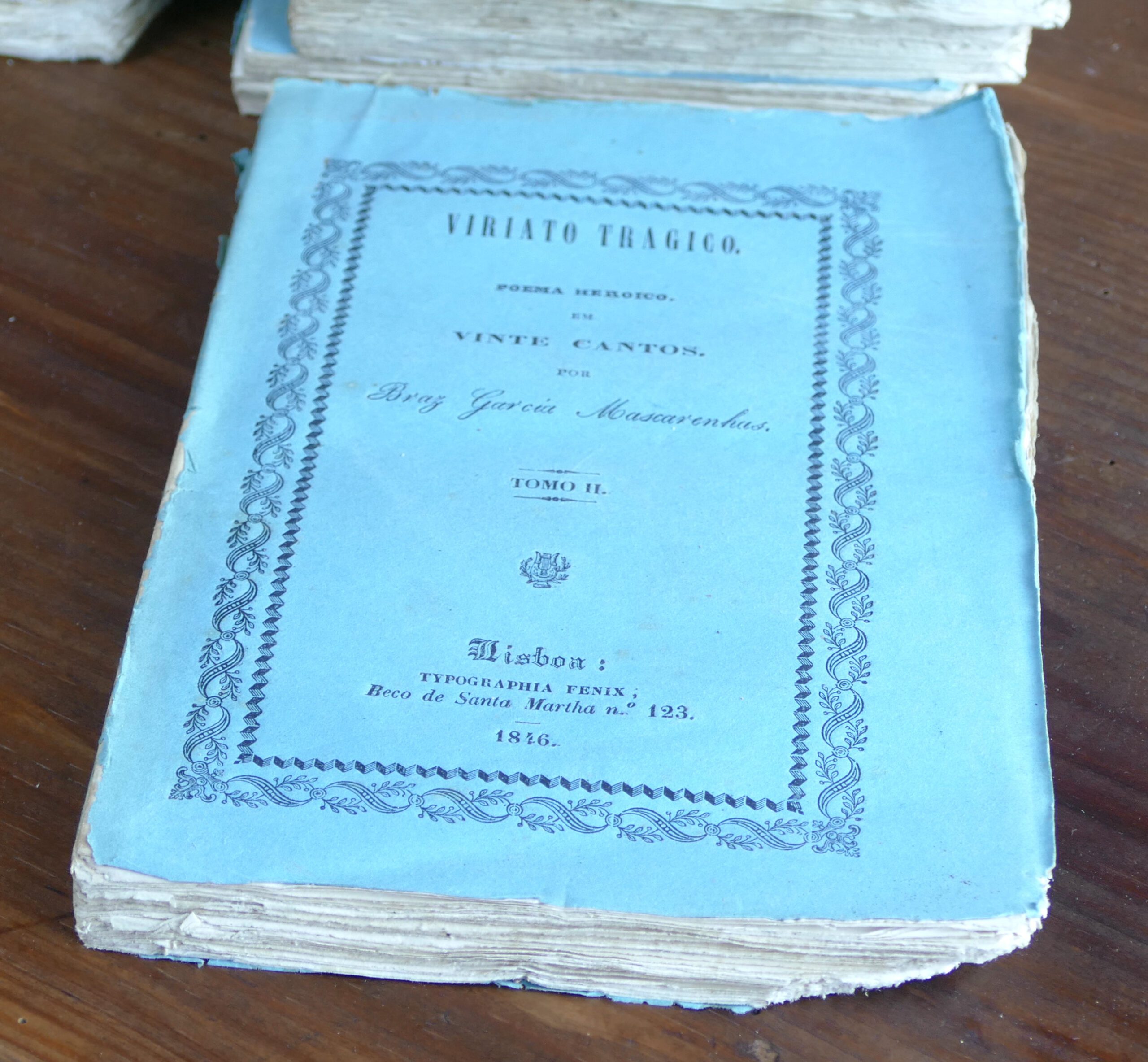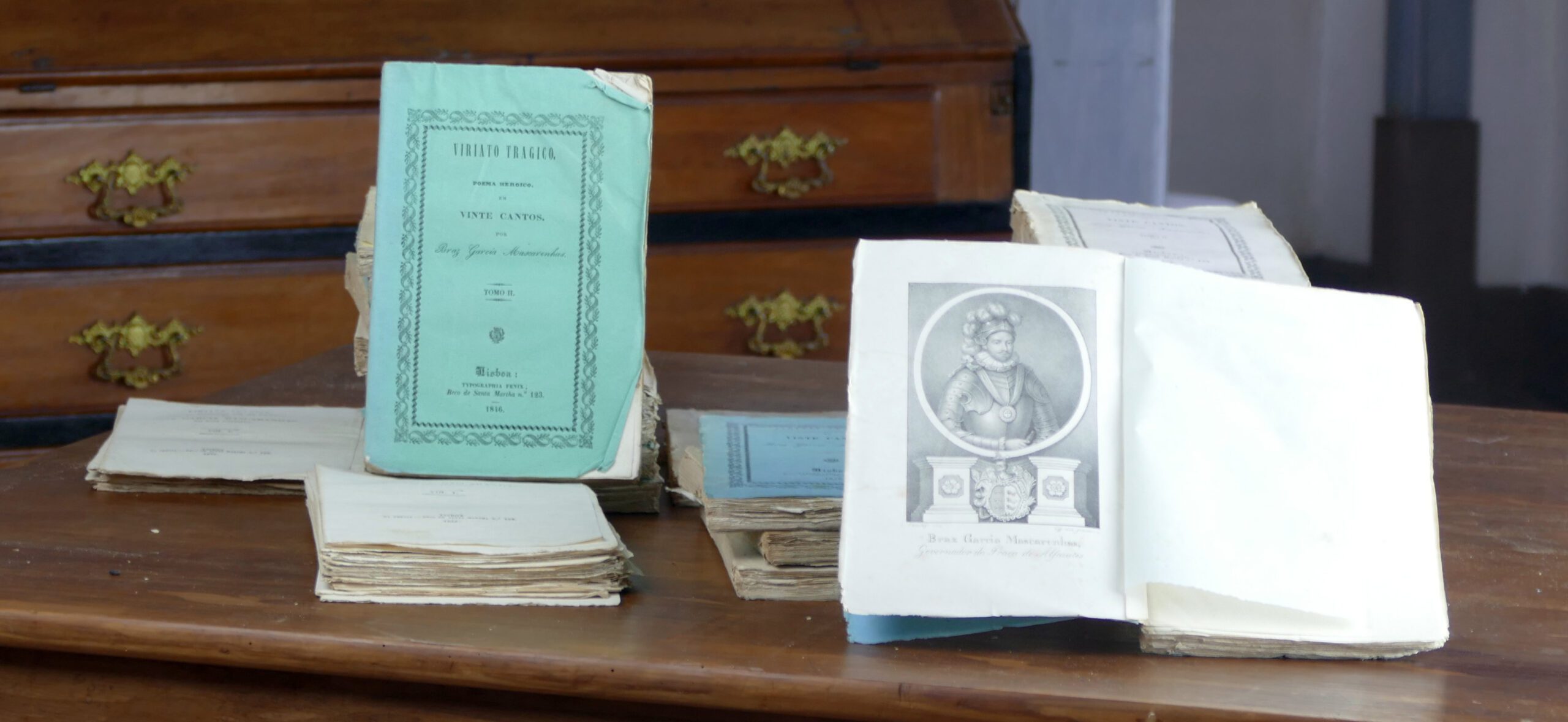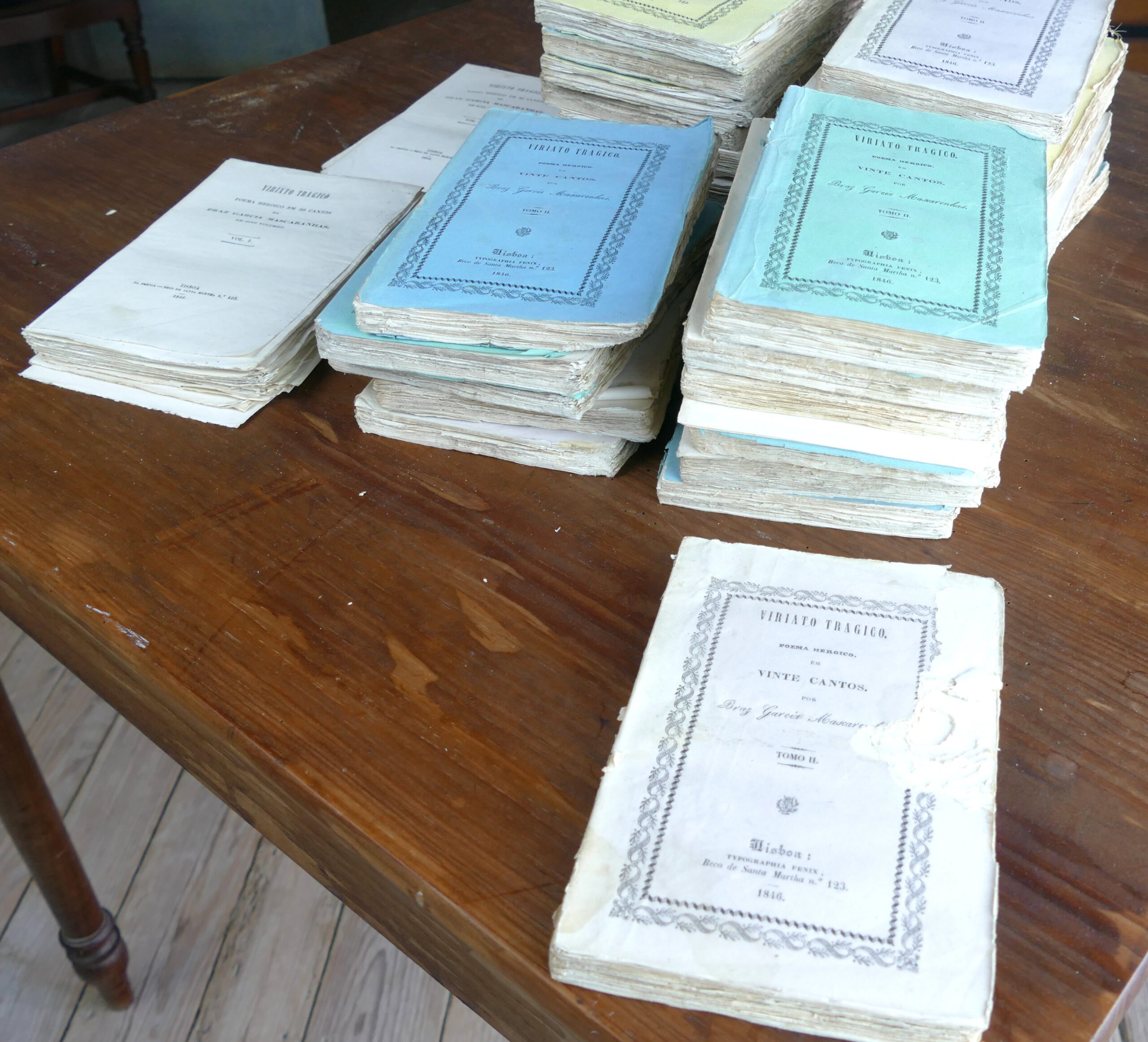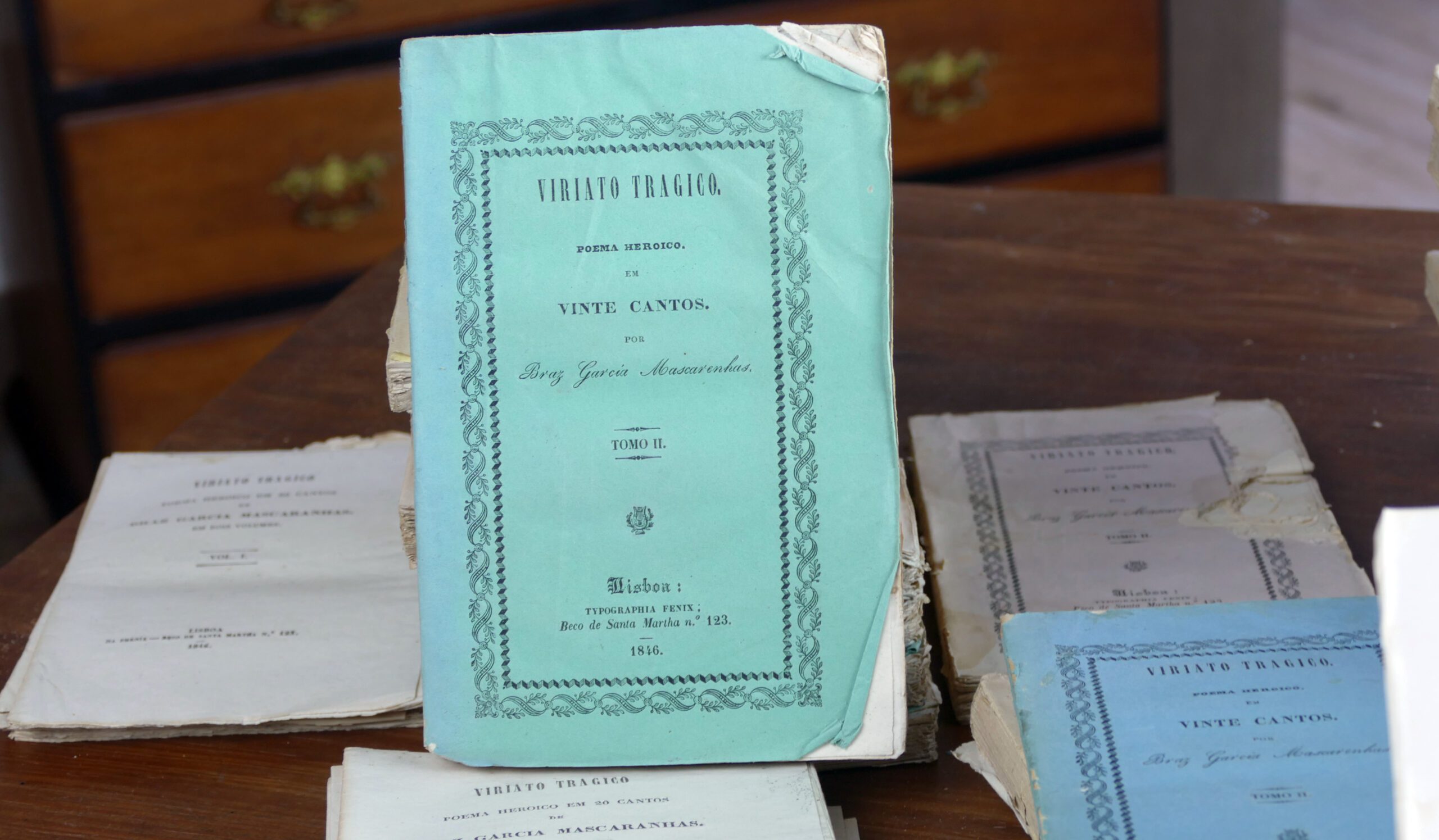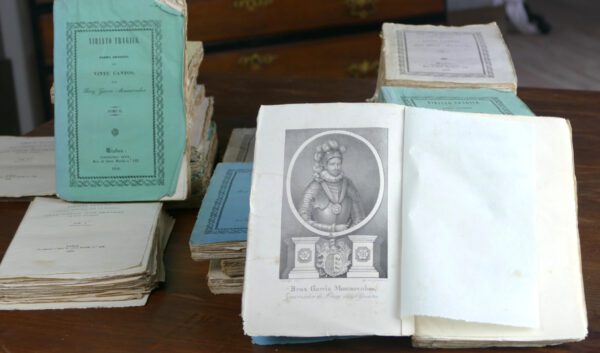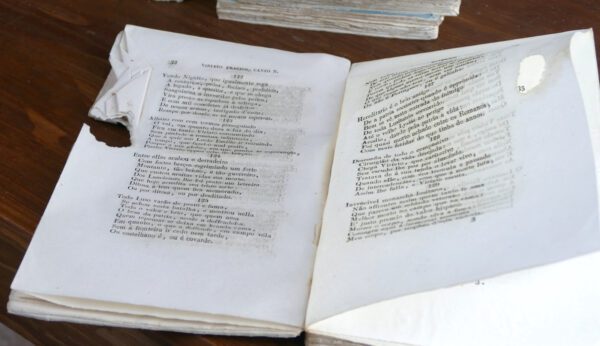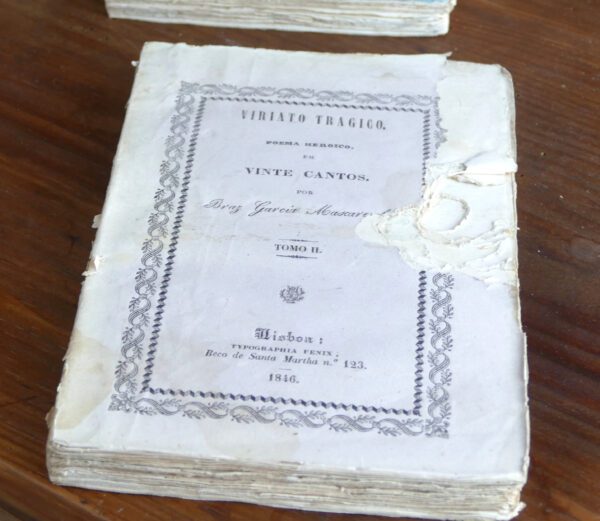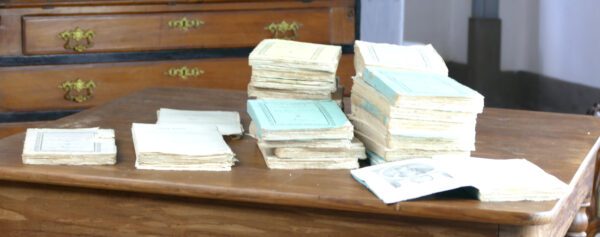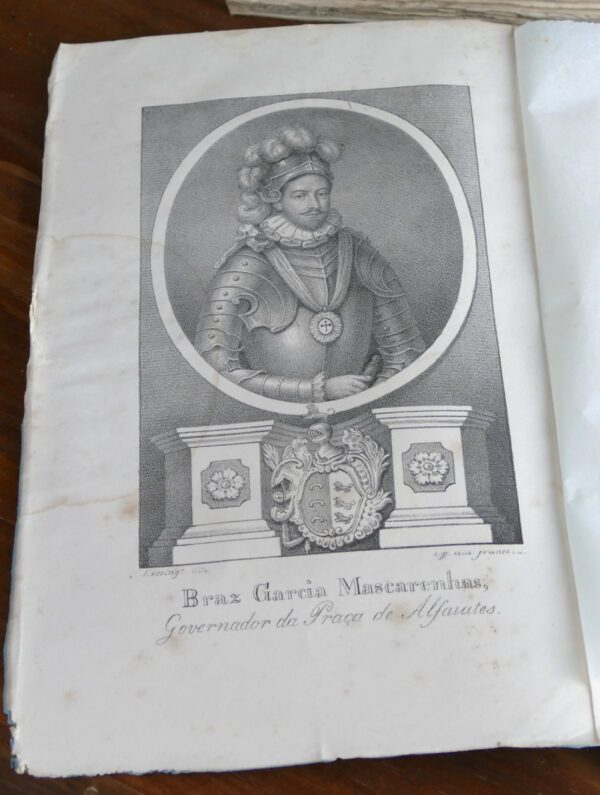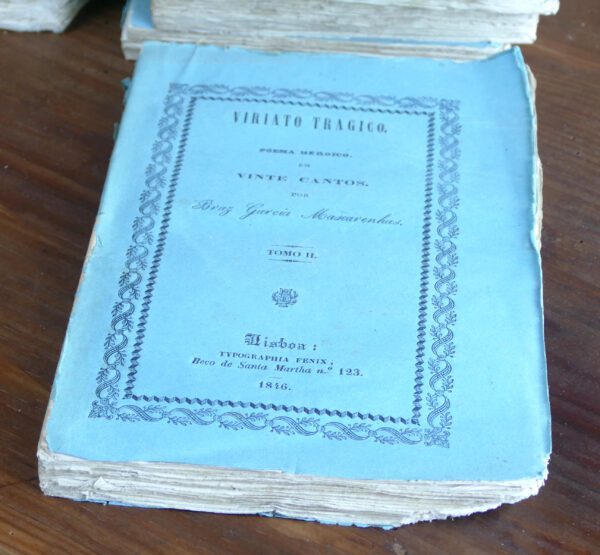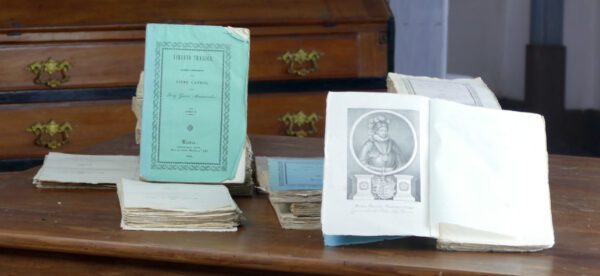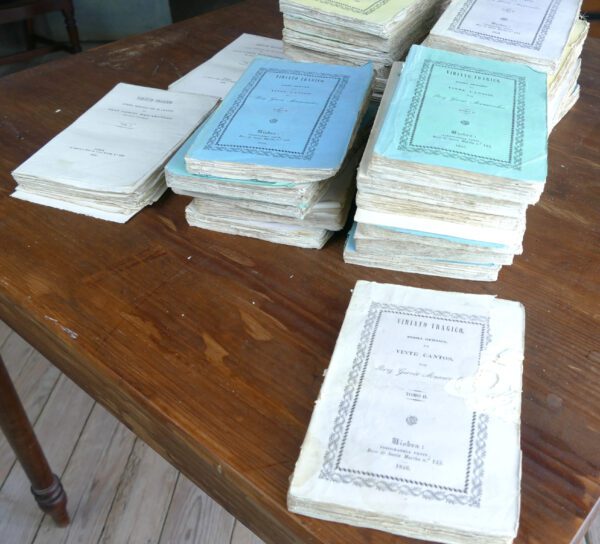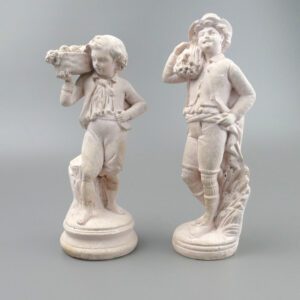Step back in time with this captivating collection of 28 books from the year 1846. Presenting “Viriato Tragico,” a heroic poem in twenty cantos by the esteemed Braz Garcia Mascarenhas, now available in Tomo II. These treasures originate from Lisboa’s venerable Tipografia Fenix.
Unveil the pages of history as most of these books remain untouched, with their original, unopened leaves awaiting your discovery. Among the gems is a unique unbound edition of “Viriato Tragico” from 1846, the heroic poem in twenty cantos by Braz Garcia Mascarenhas, Tomo I. Measuring 19×14 cm and comprising (xvi)-780-(ii) pages, this piece boasts the allure of a bygone era, wrapped in a period-style parchment softcover.
Don’t miss out on the opportunity to own a piece of literary rarity – the first posthumous edition of great significance. Delve into the life of BRAZ GARCIA MASCARENHAS, a native of Vila de Avô in the Province of Beira. He once served as the Governor of Alfaiates during the war against Castella following the restoration of 1640. Born in the vicinity of the Serra da Estrela in 1596, his eventful and romantic life culminated in his passing on August 8, 1656.
This meticulous reprint is the result of the diligent efforts of Mr. Albino de Abranches Freire de Figueiredo, the esteemed owner of the cherished old house. Accompanying the work is a biographical account of the author, partially extracted from the preceding edition. The edition is enriched with a portrait of Braz Garcia and an engraving depicting the oath of Viriato, sourced from the renowned artwork of Vieira Portuense.
Viriato Tragico unfolds across twenty cantos, each meticulously composed in octaves. Esteemed critics deem it the first Portuguese epic of the second order, distinguished by its masterful selection of subject matter and episodes. Abounding with original and ingenious comparisons, the poem’s picturesque descriptions transport readers to a vivid tapestry of the past. The military aspects are skillfully portrayed, a testament to the author’s military background. While the style adheres to the principles of the Castilian school, marked by a touch of the era’s poetic tastes, it gracefully avoids the excesses that befell many of its contemporaries.
Explore the literary treasures of the 16th to 17th centuries through the lens of Portuguese poetry. Immerse yourself in the essence of a bygone era with this remarkable collection – a fusion of history, art, and language.
